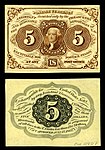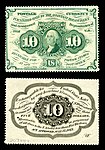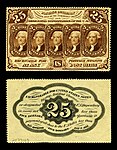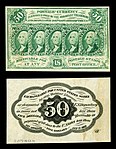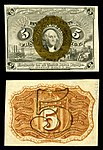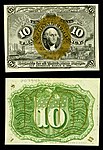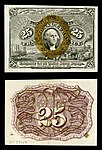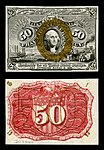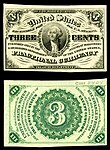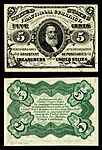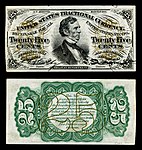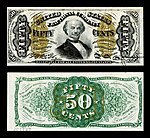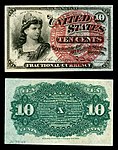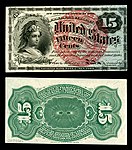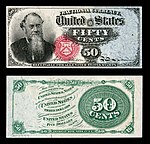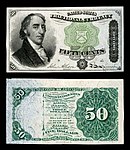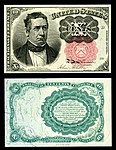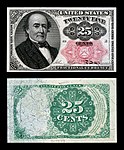Wikipedia:Wikipedia Signpost/Single/2013-11-20
The Signpost needs your help

Contributing to the Signpost can be one of the most rewarding things an editor can do. The genre is refreshingly different from that of Wikipedia articles, and can allow writers to use a different range of skills. Our circulation is ever-increasing, including more than 6000 readers for our October investigation into Wiki-PR; we reach far beyond the English Wikipedia, speaking to Wikimedians from many language Wikipedias and sister projects. Page-view counts show that readers still visit some pages up to months after publication. The need for an independent, volunteer-run Signpost continues to grow, given the increasing complexity and financial expenditures of the global Wikimedia movement, not to mention the increasing popularity of the English Wikipedia.
That said, writers for the Signpost are sorely needed. Our expectations have grown over the last several years: it takes more time to prepare each edition. As an extreme example, the Wiki-PR story took nearly a week. Yet at the same time, the number of contributors has been slowly shrinking, and there are precious few for nearly all of the regular beats. We are currently looking for editors interested in:
- "In the media"—a weekly review of news reports about Wikimedia-related projects
- "Featured content"—a weekly roundup of the English Wikipedia's newest featured content
- "Technology report"—a fortnightly beat covering the operation of Wikimedia sites and MediaWiki, the platform that Wikimedians use to collaborate, including bugs and new features
Please don't be discouraged if your desired beat already has editors listed as working on it—having a large number of contributors is ideal, as in the best of times, they lessen the burden and allow one writer at a time required to author an in-depth feature. In the worst, they provide a buffer if the others go on vacation.
Those who are interested can simply leave a comment on this article's talk page, my talk page, or by email if you'd like it to be private.
Thank you for your continued patronage.
— The ed17, Signpost editor-in-chief
Reader comments
Peter Burke's Social History of Knowledge—ambitious, fascinating, and exhaustive
- Editor's note: this is the first book review the Signpost has published in exactly three years. Those interested in reviving this long-dormant section by submitting their own review should contact the editor-in-chief.
Peter Burke, A Social History of Knowledge: Volume II: From the Encyclopédie to Wikipedia (Polity Press, Cambridge, 2012). £17.99/$24.95.

Peter Burke's A Social History of Knowledge: Volume II: From the Encyclopédie to Wikipedia is a broad and wide-ranging look at how knowledge has been created, acquired, organized, disseminated, and sometimes lost in the Western world over the last two and a half centuries, a sequel to his 2000 book covering the prior three centuries, A Social History of Knowledge: From Gutenberg to Diderot. The key word is social: Burke's interest is the institutions that create and manage knowledge, not the individuals who make particular discoveries or innovations happen. In this sense the book is a firm rejection of the "great man" historiography of the 19th century in favor of overarching cultural trends. Of course, this has long since become the standard practice of historiography, and Burke himself, Emeritus Professor of Cultural History at Cambridge University's Emmanuel College, is firmly in the mainstream of his field. Normally, this wouldn't be worth commenting on, but this work is a pure crystallization of this historiographical trend. It’s a book where the Homebrew Computer Club is discussed, but neither Steve Jobs nor Steve Wozniak are mentioned. This is appropriate in the age of Wikipedia. Jimmy Wales and Larry Sanger are mentioned, but what is important is not their personal innovations but the institution they created that allows thousands of others to innovate and disseminate knowledge.
Burke divides his book into three large sections. The first describes the processes and institutions developed for gathering, analyzing, disseminating, and employing knowledge, beginning with the great scientific expeditions of the 18th and 19th century, ravenously acquiring artifacts and scientific and cultural knowledge like it was imperial plunder, and in many ways it was. The amounts of material accumulated are still staggering, even from the perspective of the computer age. It’s an excellent way to open the book, because the next logical question is "What do we do with all of this knowledge?" Burke spends the rest of the book examining the social structures that sprang up around such knowledge. How do we gather it? The professionalization of scholarship and the development of systems of fieldwork and surveying. How do we organize it? The Dewey Decimal System, the taxonomy of Carl Linnaeus, and other frameworks. How do we spread it? The printing press, museums, World’s Fairs, public lecture programs, television. (Though the sometimes Anglocentric book unfortunately omits Carl Sagan’s Cosmos and, perplexingly for a book framed by two encyclopedias, the Encyclopedia Britannica from its otherwise comprehensive look at the mass dissemination of knowledge.) How do we use it? The development of more and more sophisticated ways of retrieving information and putting it to use in new ways, for business and industry, government, and warfare.
The second section, "The Price of Progress", describes what was lost along the way. Much of this was lost in a tangible way: lost languages, misplaced data, the destruction of museums and libraries, or the deliberate destruction of records in government purges. Other knowledge was deliberately discarded: pseudosciences like astrology or phrenology were abandoned as new knowledge was discovered to replace it. Burke also discusses more intangible losses, like the loss of interdisciplinary and generalist knowledge and expertise as knowledge production became more professionalized and specialized, as disciplines and sub-disciplines were created and split off from one another, like psychology from philosophy or the splitting of natural history into geology, botany, and zoology.
The final section provides three thematic frameworks for examining the previous sections. The first is geographical, both literal and social. On the small scale, Burke discusses the rise of grouping together of scholars in institutions like universities and the subgroups that arise, like the Chicago School, a movement in sociology that arose at the University of Chicago in the 1920s and 30s. On a larger scale, Burke discusses knowledge as a nationalistic movement and the institutions and projects that arose from that drive. On the most macro scale of all, Burke discusses the rise of the idea of "The Commonwealth of Learning" and what makes it to the center and what gets pushed to the fringes. The second framework is sociological contexts that scholars operate in, the demands and constraints of economics and politics, and the issues of gender, class, and nationality. The third is chronological, examining discrete fifty-year periods from the "reform of knowledge" (1750-1800) to "the age of reflexivities" (1900 to the present).
Of most interest to readers here is the discussion of Wikipedia. Despite its mention in the title, substantial discussion of Wikipedia is limited to about one and a half pages towards the end of his coverage of "the age of reflexivities", though given the broad scope of this work, Wikipedia receives a lengthier treatment than almost all other specific institutions mentioned in the book. In this work, Wikipedia seems to be used mostly as a convenient historical bookend and Burke misses several opportunities to integrate discussion of Wikipedia into larger historical trends he discusses. For example, in his discussion of "amateur scholars" Burke fails to link Wikipedia to previous efforts to draw on the efforts of an amateur collective, such as the Oxford English Dictionary, which was compiled with the assistance of hundreds of non-professional volunteers. Also, Wikipedia's value in synthesizing and disseminating information could have been mentioned in a discussion of the glut of information and Wikipedia's inherent interdisciplinarity could have provided a counterpoint to the trend of moving from generalism to specialization.
Overall, it is an ambitious, fascinating, and exhaustive catalog of 250 years of knowledge, though it may be a bit dry to those not already interested in the topic. Burke limits himself to the Western world, which may frustrate some readers, but includes parts of the Western world that are often overlooked in such broad survey works, like Scandinavia and Latin America. Burke excels at outlining broad trends in a comprehensible way, at broadening the scope of understanding of knowledge production to worlds beyond academia, and describing the interconnectedness between those worlds. It's doubtful that we will see another work quite like it.
Reader comments
Rockin' the featured pictures

Featured articles
Four featured articles were promoted last week.
- Nefarious: Merchant of Souls (nom) by Neelix. This 2011 American documentary film about modern sexual slavery depicts cases of human trafficking, physical abuse and attempted murder of sex workers in the United States, Europe, and Southeast Asia. Nefarious was written, directed, produced and narrated by Benjamin Nolot, a leader in Mike Bickle's International House of Prayer. The film won the Honolulu Film Award for Best Screenplay, the Urban Mediamakers Film Festival Best Documentary Feature Award, and the Indie Fest Feature Documentary Award of Excellence.
- Law school of Berytus (nom) by Elie plus. This center for the study of Roman law in classical antiquity flourished under the patronage of the Roman emperors and functioned as the empire's preeminent center of jurisprudence until its destruction in 551 in the aftermath of a massive earthquake. It was moved to Sidon but did not survive the Arab conquest of 635. The school achieved such wide recognition throughout the empire that Beirut was known as the "Mother of Laws".
- Michael Tippett (nom) by Brianboulton. Tippett (1905–1998) was an English composer who rose to prominence during and immediately after the Second World War. In his lifetime he was considered to rank with his contemporary Benjamin Britten as one of the leading British composers of the 20th century. Performances of his music have been infrequent in the 21st century, apart from his few best-known works, including the oratorio A Child of Our Time, the orchestral Fantasia Concertante on a Theme of Corelli, and the opera The Midsummer Marriage. He was a strong advocate of music education, and was active for much of his life as a radio broadcaster and writer on music.
- AdS/CFT correspondence (nom) by Polytope24. First proposed by Juan Maldacena in late 1997, the anti-de Sitter/conformal field theory correspondence is a conjectured relationship between some quantum field theories and theories of quantum gravity. It has been used to study many aspects of nuclear and condensed matter physics by translating problems in those subjects into more mathematically manageable problems in string theory. By 2010, Maldacena's article had over 7000 citations, becoming the most highly cited article in the field of high energy physics.
Featured lists
Five featured lists were promoted last week.
- 61st Academy Awards (nom) by Birdienest81. The best films of 1988 were selected by the Academy of Motion Picture Arts and Sciences at the 61st Academy Awards, held in Los Angeles, California. Rain Man, starring Tom Cruise and Dustin Hoffman, tied for the most awards overall but swept the most important categories, including Best Actor, Best Director, and Best Picture.
- World Fantasy Award for Best Novel (nom) by PresN. Part of a larger series of awards given to fantasy novels from around the world, the Best Novel category has honored authors like Gene Wolfe, Tim Powers, Jeffrey Ford, and James K. Morrow in its 38 years of operation.
- NME's Cool List (nom) by A Thousand Doors. This British magazine's listing of the 50 "coolest" musicians has spawned similar lists, despite criticism over some of its selections.
- List of Detroit Red Wings general managers (nom) by Rejectwater. The storied hockey franchise from Detroit, Michigan has had eleven general managers in its 87-year history.
- Laurel and Hardy filmography (nom) by Jimknut. Described by the nominator as "among the best loved movie comedians of all time", this duo starred in over 100 features, mostly when they were both signed with the Hal Roach studio. Three of their films have been placed on the US Library of Congress' National Film Registry.
Featured pictures


Thirty-four featured pictures were promoted last week.
- Row of taxis at the International Commerce Centre, Kowloon, Hong Kong (nom, related article) created by Poco a poco and nominated by Crisco 1492. This image of a small fraction of the more than 18,000 taxis serving Hong Kong triggered a fairly interesting philosophical discussion of what makes an image have "high" or "low" encyclopedic value.
- Simon Neil (nom, related article) created by Achim Raschka and nominated by Tomer T. This Scottish guitarist and vocalist has been a member of the bands Biffy Clyro and Marmaduke Duke. The nominator appreciated the singer's posture and the chromatic analogy between the background and the subject's guitar.
- Iberian midwife toad (nom, related article) created by Benny Trapp and nominated by Tomer T. This photo by the prolific Commons wildlife photographer depicts the Iberian midwife toad, a species of frog found in Portugal and Spain. Despite several supporters commenting on the lack of depth in one portion of the photograph, the image was raised to featured status with unanimous support.
- Burj Khalifa (nom, related article) created by Donaldytong and nominated by Planet Herald. Earth's tallest building, this image of the Burj Khalifa elicited an in-depth debate concerning the copyright status of an image that may depict a subject covered by copyright in its home country. The result of that discussion was that the image was permitted under US copyright law, irrespective of any other nation's laws, and it was promoted thereafter.
- Complete type reference set of U.S. Fractional currency (24 images) (related article) created by the United States Department of the Treasury and the Bureau of Engraving and Printing, and photographed and nominated by Godot13. An enormous undertaking by this prolific contributor, this set of images depicts a complete set of currency issued in values of less than $1.00 by the United States. Issued between 1862 and 1876, these banknotes display a variety of papers, anti-counterfeiting measures, and imagery.
- Joshua Tree National Park (nom, related article) created by Tuxyso and nominated by Crisco 1492. Don't go out to Joshua Tree National Park searching for the site of the famous U2 album image - others have perished in the attempt. This image shows, however, what was (in the course of the nomination) determined to be a typical view in the park, including a jutting rock formation and one of the park's namesake trees.
- Alatskivi Castle (nom, related article) created by Ivar Leidus and nominated by Elekhh. This Estonian castle originally dates to the 16th century, but was reconstructed in the 19th. The castle now serves as a conference center of sorts, and contains a museum to Estonian composer Eduard Tubin.
- Beata Beatrix (nom, related article) created by Dante Gabriel Rossetti and nominated by Crisco 1492. Rossetti completed this image of Dante's Beatrice Portinari from the author's La Vita Nuova in 1870. Depicting Beatrice's death, Rossetti utilized the image of his deceased wife as a model. The portrait is now on display at the Tate Britain.
- View of Ein Avdat in the Negev Desert (nom, related article) created and nominated by Godot13. Ein Avdat, a canyon in the Negev Desert of Israel, contains the largest dry riverbed in the Negev. Several springs are found in the canyon, which was inhabited from prehistoric times until the Muslim conquest of the region.
- Stockwell Bus Garage 1, London, UK (nom, related article) created and nominated by Diliff. Nominated in part because it provided a panoramic view of what was, at the time of its construction, the largest unsupported roof in Europe, this image also shows several of London's signature double-decker buses. The nomination triggered a debate concerning the image's use of panorama and the angle from which the shot was taken, which drew several opposes; the image passed, however, with 2/3 support.
-
$0.05 - Fr.1231
Thomas Jefferson. -
$0.10 - Fr.1240
George Washington. -
$0.25 - Fr.1280
Thomas Jefferson. -
$0.50 - Fr.1312
George Washington. -
$0.05 - Fr.1232
George Washington. -
$0.10 - Fr.1246
George Washington. -
$0.25 - Fr.1284
George Washington. -
$0.50 - Fr.1322
George Washington. -
$0.03 - Fr.1226
George Washington. -
$0.05 - Fr.1238
Spencer Clark. -
$0.10 - Fr.1254
George Washington. -
$0.25 - Fr.1294
William Fessenden. -
$0.50 - Fr.1328
Francis Spinner. -
$0.50 - Fr.1339
Francis Spinner. -
$0.50 - Fr.1355
Justice holding scales. -
$0.10 - Fr.1259
Bust of Liberty. -
$0.10 - Fr.1269
Bust of Columbia. -
$0.25 - Fr.1303
George Washington. -
$0.50 - Fr.1374
Abraham Lincoln. -
$0.50 - Fr.1376
Edwin Stanton. -
$0.50 - Fr.1379
Samuel Dexter. -
$0.10 - Fr.1265
William Meredith. -
$0.25 - Fr.1308
Robert Walker. -
$0.50 - Fr.1381
William Crawford.
Disclaimer: Summaries on this page borrow shamelessly from the articles cited; see the article histories for attribution.
Reader comments
Score! American football on Wikipedia
This week, we headed over to WikiProject National Football League. With 10 Featured Articles, 61 Featured Lists, and 142 Good Articles (as of publication), this WikiProject has done a lot of work improving American football articles. This week, we interviewed ZappaOMati, Sportsguy17, Deejayk, and Zzyzx11.
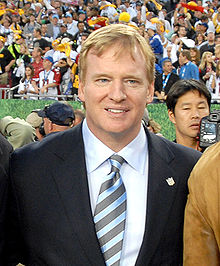


- What motivated you to join WikiProject NFL? What kind of NFL-related articles do you like to work on?
- ZappaOMati: Football was one of my first obsessions, and the first articles I created were football-related, so when I found out about WikiProject NFL's existence, I didn't hesitate in joining. Usually the pages I work on tend to vary, though pages about the Chicago Bears are usually my main focus.
- Sportsguy17: Similar to ZappaOMati, I enjoy football and I love following the NFL. I have been less active as I hoped, but now that we're heading into Thanksgiving games, and soon enough, the playoffs, I'll be getting more active there.
- DeeJayK: As you would probably assume, I'm a big football fan, particularly of the Pittsburgh Steelers. I started editing football-related articles when I found that coverage of some topics was lacking. My interest in the NFL WikiProject came about simply because it's a great resource to interface with like-minded editors and build consensus around best practices to improve articles on the subject.
- Zzyzx11: I was the one who first started WikiProject NFL back in July 2005. I originally came to Wikipedia in February 2005 with an interest in the NFL-related articles, and my first edits as a registered user were the Super Bowl-related pages. For the next several months, I was one of the few main contributors to the NFL-related articles. After looking through WikiProject Football and WikiProject Ice Hockey in May 2005, I thought about also creating one for the NFL pages, but it was not until July when another Wikipedian asked me on how to organize activity on these NFL articles.
- WikiProject NFL has 10 Featured Articles, but also has a very shocking 61 Featured Lists. Can you explain why WP NFL has so much Featured Lists?
- DeeJayK: I assume this is in part because the topic sort of lends itself to lists and also because getting a list to "featured" status simply seems to take less work and investment of time than getting an article featured.
- Zzyzx11: Statistics plays an important role in analyzing American football teams, coaches, and players, probably more so than baseball or other team sports. Since there are a lot of reliable sources on all these statistics, it is usually easier to add them to Wikipedia and convert them to featured status.
- What type of NFL articles do you like to improve? (Players, coaches, seasons, etc.)
- ZappaOMati: I usually like to improve pages about players, and report any news regarding them once they're confirmed, (e.g., transactions) along with updating/adding recaps to season pages. Also, two of the main priorities of mine include maintaining List of NFL starting quarterbacks, while also doing the same with List of current National Football League head coaches in the future.
- DeeJayK: While I have created and edited many player articles, lately my focus has been on improving season articles and articles with a wider scope (e.g. articles/lists on the NFL Draft, All-Pro teams, Pro Bowls and league championships). Particularly I like to work on articles where reliable information is difficult to find elsewhere online, as in the case of some of the games and events from the early days of the league.
- I noticed that you have a format for different types of articles. Do you use these formats when you create new articles?
- DeeJayK: Most definitely, and this is where I find the WikiProject particularly valuable. When establishing or changing article format "standards" it's so valuable to open the topic up to the other editors involved with the project. A good example of this is the evolution of the NFL Draft article format (e.g. 2013 NFL Draft) which came about as a result of a series of discussion in the WikiProject.
- Zzyzx11: This was one of the first things we emphasized during the first few weeks of Wikiproject NFL's existence. I was inspired by WikiProject Ice Hockey's formats, and I therefore initially drafted similar ones for Wikiproject NFL, listing what I was doing when contributing to the NFL articles during spring 2005. These formats also help getting some of these NFL-related pages to featured or good article status. It is no accident that, for example, Chicago Bears head coaches, New England Patriots head coaches, and 20 other featured lists on NFL head coaches look similar.
- Do you participate in any of the numerous task forces?
- ZappaOMati: I rarely join task forces if the scopes are not of my interest, and of the 17 task forces in existence, the lone one that I am in is WikiProject Chicago Bears.
- Sportsguy17: I may join task forces if I want to focus on one team, but I have someone similar thoughts to ZappaOMati on this one.
- DeeJayK: I also rarely join task forces as I find that I stay busy enough just by stumbling onto pages where I find opportunities for improvement.
- How can a new contributor help today?
- ZappaOMati: Pages always require updating, especially in the always-evolving NFL. As players/coaches come and go, and games are played, there must be someone to take action and edit articles to keep them up-to-date. Photos would also be greatly appreciated; there are many great players in the NFL who don't have photos (Mike Vanderjagt, for example) or have photos of poor quality (like Rob Gronkowski) that should be replaced.
- DeeJayK: The advice I would give is just to look around the site until you find an article you are interested in that seems lacking. Do some research into that topic and try to improve that article. I find that while I'm researching information to flesh out one article I generally come upon information that would improve another article, with one edit leading to the next. If you need some ideas of places other editors have identified as lacking or in need of improvement, check out the WikiProject's to-do list.
- Is there anything else you'd like to add?
- DeeJayK: Thanks for providing this opportunity to shed some light on the NFL WikiProject!
- Zzyzx11: Maintaining articles, not just NFL-related pages but also articles on any other topic, is a year-round task. Most of my activity on NFL-related articles is generally during the spring and summer when the league is in its offseason, and there are less news spikes and recentism activity.
Next week, we'll pad onto previous reports. Until then, check out the old ones at the archives.
Reader comments
Foundation to Wiki-PR: cease and desist; Arbitration Committee elections starting
Wikimedia Foundation demands end to Wiki-PR's Wikipedia edits, citing Terms of Use
The Wikimedia Foundation has sent a formal cease and desist letter to Wiki-PR—the public relations agency accused of breaking Wikipedia policies and guidelines by creating, editing, and maintaining several thousand articles for paying clients through a sophisticated array of accounts. The Foundation's attorneys, Cooley LLP, have demanded that Wiki-PR's employees abide by the site's Terms of Use and the language of a community ban from the English Wikipedia.
Wiki-PR's attempts to obscure the nature of their Wikipedia editing through statements ("We do paid editing and not paid advocacy. We’re as boring as any other research firm.") and actions have been wide-ranging. As we reported nearly two months ago:
| “ | Those who work for Wiki-PR have indeed gone to extensive lengths to hide their activities on Wikipedia. This has included altering their habitual behavioral patterns, frequently changing their IP addresses (apparently to avoid being caught by the "checkuser" tool), and bypassing the normal gatekeeping process by which editors police new submissions to the English Wikipedia. ... / ... Wikipedia's long-term abuse file on Wiki-PR ... shows that the company's employees have created and used a staggering 323 accounts, with another 84 suspected. | ” |
These revelations were quickly followed by a community ban voted on and enacted by volunteer Wikipedia editors, because Wiki-PR had "proven themselves repeatedly unable or unwilling to adhere to [Wikipedia's] basic community standards." To be unbanned, the agency would have to comply with three directives: (a) divulge a complete list of all past sock and meatpuppet accounts they have used, (b) divulge a complete list of all articles they have edited for which they have received financial benefit, and (c) pledge to edit only under transparent, disclosed accounts and to adhere as closely as they are able to all of Wikipedia’s content policies.
The letter reveals that this ban may have had little impact on Wiki-PR's operation. Since being exposed, Wiki-PR has continued to seek new clients—even while assuring the Foundation that they would comply with the ban:
| “ | In your communications with me [Patrick Gunn, Cooley LLP attorney] and the Foundation, you have stated your intent to work with the community to satisfy its conditions for lifting the ban. Yet, yesterday, you admitted that Wiki-PR has continued to actively market paid advocacy editing services despite the ban—consistent with evidence that we have discovered independently. This is deeply troubling and suggests that Wiki-PR is circumventing the ban at the same time it professes to engage with the community about complying with it. | ” |
The problem was so extensive that the Foundation's executive director Sue Gardner issued a statement in October, which quickly received wide-ranging press coverage, and retained the high-profile international law firm Cooley LLP to assist in investigating the incident. Cooley advertises that it has expertise in trademark, copyright, user-generated content, intellectual property, and competition law, and Signpost readers may recall that they, at the behest of the Foundation, represented Wikimedia community members Doc James (James Heilman) and Wrh2 (Ryan Holliday) when they were sued by Internet Brands for their involvement with Wikivoyage. This action ended in "victory" for the editors.
The letter garnered much attention from the press, including the Guardian, Los Angeles Times, Independent, and Mashable.
Jordan French, Wiki-PR's CEO, told news outlets that "Wiki-PR is working with the Wikimedia Foundation and its counsel to sort this out", but the Foundation's Matthew Roth was quick to clarify: "They [Wiki-PR] mischaracterize the communication we have had. The Wikimedia Foundation has communicated with Wiki-PR, but we reject any implication that we are negotiating with them ... As stated in the cease and desist letter, Wiki-PR has been banned by the Wikipedia community, and must cease editing until it fully complies with the terms and conditions outlined by the community. Because of this, if Wiki-PR wishes to continue editing, they should talk with the community."
Late surge of ArbCom nominations, then five withdrawals
EXCERPTS FROM CANDIDATE STATEMENTS:
I imagine I am not anyone's ideal candidate
The WMF unfortunately already knows who I am
This nomination may scare a few people
If elected, I'm not going to be a terribly active arb
I am a terrible liar
I still reflexively think of myself as a casual hobbyist puttering around a monument built by others
I have a lot of things going against me
There are two hate videos about me on YouTube, all relating to my actions on Wikipedia
I have issued over 2,500 blocks
My education will take presidence [sic] over anything wiki related
I am, by nature, a deliberative person with a minimalist bent
After a year of quietly throwing things at walls rather than spend hours fighting something on the project, I am coming back on
I promise not to block anyone on ArbCom while I'm on it
In less than a day's time, at midnight UTC start of Monday, the two-week voting period for the 11th annual election of the English Wikipedia's Arbitration Committee will begin. The election is being run by a group of self-selected community volunteer election coordinators, and a three-member panel—apparently called the "Electoral Commission"—to solve disputes and make decisions on unexpected problems. There are nine vacant seats on the 15-member committee, in which members have two-year terms.
As in previous ArbCom elections, the electronic interface SecurePoll will be used, with support–neutral–oppose ternary choice and the S/S+O formula. The use of this system has not yet made a difference to who is elected to the Committee compared with the more widely used binary system of percentage support among all voters (S/V).
Barely a day before the close of nominations at midnight UTC end of Tuesday 19 November, there were only 9, then 11 candidates. A late rush to nominate (one pushed the button only four minutes before the deadline) saw numbers grow to 27. As Ealdgyth wrote: "Sweet mother of all the gods—I go to the afternoon matinee of a movie ... and there are 7 more candidates!" Five of those candidates have since withdrawn, some of them writing that they had nominated only because the field had been so small. This has brought the total number of candidates back to 22, comparing with 21 last year, 17 in 2011, and 21 in 2010.
The candidate guide shows that two hopefuls are sitting arbitrators (AGK and Roger Davies); one is a bureaucrat; four are not admins (Kraxler, Isarra, The Devil's Advocate, and Guerillero); six are oversighters; eight are checkusers; one is an arbitration clerk (Ks0stm); and two are former arbitration clerks (AGK and Guerillero). The candidates between them have already had 11 unsuccessful bids for election to ArbCom. Fifteen prepackaged "general" questions have been asked of each candidate, and voters are still able to pose "individual questions".
Scrutineers have technical access to the SecurePoll system allowing them to check the validity of cast ballots and to certify the final results. Scrutineers are drawn from the ranks of stewards (highly trusted Wikimedia functionaries) whose primary editing side is not the English Wikipedia. Their task typically takes from less than a day to several days after the close of voting at midnight UTC end of Sunday 8 December. The scrutineers are Mathonius (talk · contribs) (Dutch WP), Vituzzu (talk · contribs) (Italian WP), Matanya (talk · contribs) (Hebrew WP), and Tegel (talk · contribs) (Swedish WP). For their instructions, thanks must go largely to Happy-Melon, who prepared the original draft in 2011, and MBisanz.
Found under the humorous shortcut ACECANDY, the candidates have each presented statements of up to 400 words. Badmouthing the committee was in vogue, if some of these statements are anything to go by. Georgewhilliamherbert wrote: "Something has gone wrong with Wikipedia. Arbcom has not been helping." For NativeForeigner: "Arbcom case pages give frustratingly little insight into the thought process or discussion involved in reaching a decision". Arthur Rubin said: "I think some of the members of ArbCom have lost sight of the concept that the purpose of Wikipedia is to add and maintain content". Seraphimblade said: "Over recent years, I've seen ... an erosion of trust in ArbCom ..."
Some candidates decided to thrust the knife in. Kww wrote: "I've always been disturbed by Arbcom's ability to miss the point and ignore obvious implications of all issues brought before it, ... This year, I'm even more disturbed by the rack of candidates running. Some of the names here would do more damage to Wikipedia than I can conceive of." But David Gerard was the stand-out in this respect, referring to "strange and disturbing decisions of the Arbitration Committee ... We see the reputation of the English Wikipedia dragged through the mud by bad Arbitration Committee decisions. ... / intemperate decisions, inability to acknowledge gross errors, abuse of powers (including oversight) to suppress criticism of their decisions, attempts to provoke the Wikimedia Foundation to confrontation and regulatory capture by trolls has led to palpable fear in its checkusers and oversighters, dismay and disgust from Foundation and chapter staff, and unwillingness of everyday editors to deal with them in any manner."
If voters were still short of opinions about the candidates, the election is adorned by no fewer than 20 voter guides. The Lady Catherine de Burgh, for example, has stepped out of Jane Austen's novel Pride and Prejudice to represent the sorely missed views of the English aristocracy at its most haughty. AGK, she is sure, "has nice legs and looks very dashing in his kilt". David Gerard, who apparently lives in the same city as the Lady, probably "mixes in a circle and place with which I am unfamiliar ... There is also something very unsavory in his woodshed". Gamaliel "sounds like an unfortunate disease of the leg", and Seraphimblade is a "peculiar name; probably foreign".
All editors who had a registered account before 28 October, have made at least 150 mainspace edits by 1 November, and are not blocked from the English Wikipedia when voting, are encouraged to have their say in electing new members of one of the most important bodies in the Wikimedia movement.

In brief

- The Signpost notes with sadness the passing of Jackson Peebles (right), a Western Michigan University Honors student of behavioural science and biology. Jackson was a Teahouse host, an instructor in the Education Program, and the lead on a Video Tutorials Project through the Foundation. More information on his life can be found here.
- Wikimedia Germany elections: Voting for the entire new board of the second-largest entity in the movement, Wikimedia Germany, will conclude on 30 November. Nine of the ten board seats are contested: two deputy chairs, a treasurer, and six ordinary members; the position of chair is uncontested. More than 1700 members are eligible to vote, although past elections have struggled to garner votes from half, who must post hard-copy forms to participate. The Signpost understands that some candidates are standing on single issues, and that one well-known candidate's stated policy is that the chapter reduce its financial dependence on the WMF to less than 50% within 18 months.
- Wiki Education Foundation: The former Foundation pilot project and program has been formally spun off into its own independent entity with the help of a nearly US$150k grant from the Foundation, including just over $100k for an executive director and program manager. The program has run into multiple problems during the transition: being spun off was postponed from June to now; their plan to apply to be a Wikimedia thematic organization was suspended after disagreements with the Affiliations Committee; and the Education noticeboard has been filled with questions on how beneficial recent student editing has been.
- Call for input on the possible new trademark policy: The Foundation is calling for community comments on what it hopes will be a new trademark policy. The current version is four years old and was based on Mozilla's; the proposed policy will be tailored for Wikimedia requirements, explicitly allowing the use of the trademark in wide-ranging scenarios. The draft on Meta features a host of FAQs and vibrant discussion.
Reader comments
Ill Winds
Summary: It's not hard to guess which event is leading interest in the top 25 this week. The sheer scale of Typhoon Haiyan is staggering; estimates place its maximum windspeed upon first landfall in the Philippines on November 6 at 315 km/h, which would make it the most powerful tropical cyclone ever to reach land. To date, the storm has killed nearly 4000 people and damaged or destroyed nearly 4 million homes. Fortunately, if there's one thing Wikipedia does well, it's cyclones. Our coverage of hurricane- and typhoon-related topics is genuinely excellent, so we proved a good first resource for those seeking news and information. However, despite constant, repeated warnings from climatologists not to confuse climate with the weather, the public immediately made a connection between Typhoon Haiyan and global warming, or its supposed non-existence. In other news, Armistice Day, known in the US as Veterans Day and in the UK and Commonwealth as Remembrance Day, fell this week, and its emotional weight will no doubt increase as we approach its 100th anniversary in 2018.
For the full top 25 report, plus exclusions, see: WP:TOP25
For the week of November 11 to 17, the 10 most popular articles on Wikipedia, as determined from the report of the 5,000 most trafficked pages* were:
Rank Article Class Views Image Notes 1 Climatic Research Unit email controversy 
2,119,177 
It's not really surprising that this controversy, better known as "Climategate", has shot to the top in the wake of Typhoon Haiyan, although eight committees acquitted the scientists in question of any wrongdoing. 2 Sachin Tendulkar 
873,040 
The highest scoring international cricketer in history retired this week after a 24-year career, during which he scored 18,426 runs in one day internationals and 15,470 runs in test matches (both all-time records) and was the only person ever to score a hundred hundreds internationally. 3 United States 
513,779 
The 3rd most popular Wikipedia article between 2010 and 2012, and a perpetual bubble-under-er. Not really surprising that the country with by far the most English speakers would be the most popular on the English Wikipedia. 4 Remembrance Day 
508,542 
The eleventh hour of the eleventh day of the eleventh month of 1918 was meant to signify not only the end of the Great War, but of war itself. No one could be insane enough to wound humanity again as brutally as it had been wounded during those four agonising years. Instead, it signified only a moment's respite; the first interlude in a century-long Grand Guignol which would feature the deaths and suffering of tens of millions and which, in many ways, has yet to conclude. In the chaos and carnage we have since visited upon ourselves, it is fitting that each year we try to recapture that moment of peace, passing it into the future like an eternal flame. 5 Facebook 
479,015 A perennially popular article 6 Typhoon 
461,381 
The name for a tropical cyclone in the western Pacific (in the eastern Pacific and Atlantic, they're called hurricanes) became an international topic of discussion when Typhoon Haiyan hit the news. 7 Veterans Day 
457,001 
The American name for Armistice Day- see #4 above. 8 Eminem 
443,100 
The rapper's latest album, The Marshall Mathers LP 2, was released on November 5. 9 Lorde 
441,556 The just-turned 17-year-old singer-songwriter from New Zealand released her debut album, Pure Heroine, on 27 September. 10 World War II 
415,995 
Another perennially popular article. (The 16th most popular article from 2010 to 2012, in fact; see Table 2 here.)
Reader comments
Arbitration Committee election opens; WMF opens the door for non-admin arbitrators
Voting is now open for a new arbitration committee. Candidate statements and responses to questions are available for inspection.
The WMF legal team has issued a statement on arbitrator permissions that allows non-administrators to run for arbitrator.
The 2013 arbitration election is now open after a mishap with the SecurePoll voting system. It will run for fourteen days, ending Tuesday, 9 December, at one minute before midnight.
There are nine empty seats to be filled, three from arbitrators who have resigned during the term, and six from arbitrators whose terms are expiring. Two of the current arbitrators whose terms are expiring, AGK and Roger Davies, have announced they would run again. The four arbitrators whose terms are expiring, and who will not be running for re-election are Kirill Lokshin, Risker, SilkTork, and Courcelles.
Voters can inform themselves about the candidates through several of the election subpages. A list of the candidates, along with their nomination statements is at Arbitration Committee Elections December 2013/Candidates. A summary guide chart profiles the candidates, showing their current user rights, other positions held, previous positions, and requests for other positions (administrator, checkuser, bureaucrat. arbitrator, mediation committee, etc.). The candidates' responses to a standardized list of questions are linked from their individual statements. Members of the community can pose questions to the individual candidates. There is also a list of voter guides compiled by individual editors.
Editors may vote here. Candidates' names are randomized and will appear in a different order each time the page is accessed. Discussion of the candidates will continue throughout the voting period, and voters may change their vote at any time before the close of voting, simply by voting again. The new ballot page will override the old one. You can verify that your vote has been recorded by checking the voting log.
This week's "News and notes" features a section with extended coverage of the elections.
WMF statement: Being an administrator is not a requirement for arbitrators
In response to a question posed by outgoing arbitrator Risker, the WMF legal team has clarified its position to allow non-administrators to run for arbitrator. The announcement came barely 24 hours before the nomination period closed, but as a result of the announcement, there are now 3 non-admin candidates running for arbitrator: Isarra, Kraxler, and The Devil's Advocate.
The question of non-admins holding various positions has come up before, most recently in March, when the WMF issued a statement from its legal team that Audit Subcommittee members required an "RFA or RFA-identical process" for access to deleted revisions. Because of this, it was concluded that AUSC committee appointments were not open to non-admins.
The WMF legal team has now clarified its position regarding the arbitration elections, saying that running for and winning an election for arbitrator would qualify as the type of rigorous community selection process required for the checkuser and oversight rights held by arbitrators.
| “ | Our legal and community advocacy team has been asked whether running for (and winning) a seat on the Arbitration Committee would meet the "rigorous community selection process" test, and therefore qualify an elected ArbCom member for Checkuser/Oversight rights. We believe that being elected to ArbCom is an involved process that strongly demonstrates community trust, and that there is a reasonable expectation that Arbitration Committee members on the English Wikipedia's Arbcom will hold those tools, except in exceptional circumstances. Therefore, we will not object to the assignment of checkuser/oversight tools to any user who runs for, wins, and is seated on the Arbitration Committee. | ” |
A copy of this notice was also posted to the elections page.
Reader comments

